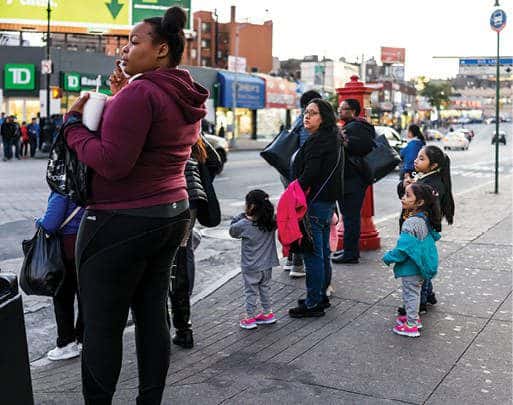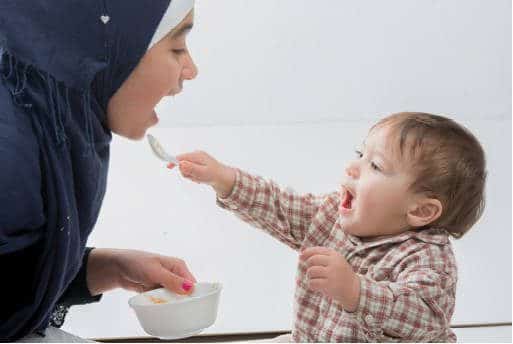Carmen Rosa Noroña, Boston Medical Center Boston, Massachusetts
Patricia P. Lakatos, University of Southern California
Mary Wise-Kriplani, Center for Child & Family Health Durham, North Carolina
Marian E. Williams, University of Southern California

Abstract
Developing a cultural formulation during a diagnostic assessment with a young child is the foundation for work with diverse families. It requires critical reflection on the part of the clinician about the socio-cultural, historical, and political influences and consequently aspects of privilege and oppression in their own lives and professional practice, as well as on the impact of structural inequities in the lives of the families with whom they work. This article explores the origins and importance of the DC:0–5 Cultural Formulation for Use with Infants and Toddlers Table and its potential to be used as a tool to support the clinician’s ongoing commitment and accountability to engage in critical self-exploration and diversity-informed practice. The authors consider implications for practice and policy, and provide reflective questions to deepen one’s use of the Cultural Formulation in DC:0–5TM: Diagnostic Classification of Mental Health and Developmental Disorders in Infancy and Early Childhood.
Sofia is a recently licensed clinician who is worried about Joseph, a 10-month old baby who is having difficulties transitioning to eating solid foods. Struggles around feeding have created a great deal of tension in the family. Joseph had emergency surgery at birth because of an intestinal obstruction and required an extended hospital stay due to initial challenges with feeding. Joseph’s mother, a Mexican immigrant with strong beliefs about how a good mother should feed her baby, tried breastfeeding Joseph when he was in the hospital but had to switch to formula because she was not producing enough breast milk. Because of this difficult beginning she has always felt like a failure. This is a secret she has kept from her family who lives in her home country.
In this article, we will explore the role of the socio-cultural context in diagnostic assessment. We provide a vignette that offers the reader an ear to an intimate reflective supervisory discussion about how to consider the socio-cultural and intersectionality dynamics of the relationship between the child’s caregivers and the clinician, and how to integrate the Cultural Formulation for Use With Infants and Toddlers found in DC:0–5TM: Diagnostic Classification of Mental Health and Developmental Disorders of Infancy and Early Childhood (DC:0–5; ZERO TO THREE, 2016) into the understanding of the case. The clinician explores her own social identities, including their impact on her perceptions of the family and herself and consequently on her work.
Defining Culture
The socio-cultural context influences every aspect of human development, including how infant and early childhood mental health is understood, the expression of young children’s development and attachment, adults’ goals and expectations for young children’s behavior and developmental milestones, and child-rearing practices used by parents and caregivers (ZERO TO THREE Infant Mental Health Task Force, 2001).
Culture is a prevailing aspect of social identity, and it includes values and worldviews that embody the ways in which people are taught by their contexts and relationships to be in the world and relate to others (Sue & Sue, 2003). These powerful influences color one’s perceptions and behaviors and the interpretation of other people’s behaviors (Miller & Garran, 2017) and are often unconscious and therefore deeply rooted in oneself. Inherently, culture provides a framework to considering how the members of a group interpret, use, and perceive the world (Banks & Banks, 2019); it offers “the psychic structure” (Lewis & Ghosh Ippen, 2004, p. 13) for relationships between members of a group while helping them make meaning of the world surrounding them (Noroña, 2018).
Culture is dynamic; therefore, the meanings and behaviors molded by it, in its internal and external representations, are subject to continuous modification (Marsella & Yamada, 2000). It is not “some-thing” (Reyes Cruz & Sonn, 2011, p. 205) that exists outside of the observer (e.g., researchers, practitioners) but it exists in context and is impacted by contextual forces. From a social justice and critical social science approach, culture is viewed as a historical product, a process and a means of action. It is an ongoing social construction that articulates the way in which we learn to live and make meaning of life yet at all times in relationship to others and within specific social, economic, historical, and political contexts (Reyes Cruz & Sonn, 2011). To understand culture, practitioners need to increase their awareness and understanding of the ways in which it is “intertwined with power/oppression/exploitation and locate those processes within historical/social/political contexts” (Reyes Cruz & Sonn, 2011, p. 211). It follows that individuals from different socio-cultural, historical, and political contexts and traditions will define and experience reality in very different ways (Noroña, 2018).
From a diversity-informed perspective, the socio-cultural context, along with markers like race, ethnicity, nationality, gender identification, sexual orientation, immigration status, ability, class, and others, constitute the various dimensions of an individual’s social identities and social locations (who one is and who one is not) and therefore with being positioned as The socio-cultural context influences every aspect of human development. agents or targets in power relations. Individuals and groups can hold multiple social identities (Hernandez & McDowell, 2010; van Mens-Verhulst & Radtke, 2008) and may be positioned in contradictory ways; therefore, it is important to use infant mental health frameworks and interventions that honor how families see themselves and their babies in the context of their socio-cultural identifications. These approaches must also allow for an understanding of the structural forces (socio-political, historical processes) that reproduce patterns of racism, oppression, exclusion, and inequity affecting young children and their families and their functioning (Noroña, 2018).
DC:0–5TM: Diagnostic Classification of Mental Health and Developmental Disorders of Infancy and Early Childhood (DC:0–5; ZERO TO THREE, 2016) provides the Cultural Formulation for Use With Infants and Toddlers table as a tool to support a clinician’s ongoing critical exploration of their own socio-cultural identities and their influences as well as those of the child and family. Increased skills and willingness in infant and early childhood mental health practitioners to examine contextual issues encompassing dynamics of power and privilege, in the field and in themselves, can reduce the possibility for further replicating patterns of exclusion and inequities (e.g., using Eurocentric frameworks). This self-reflection and understanding is important when conducting assessments, conceptualizing the child’s and family’s needs, identifying disorders and diagnoses, and implementing interventions, particularly with children and families who have been historically marginalized.
DC:0–5 and the Cultural Formulation for Use With Infants and Toddlers
DC:0–5 embeds clinical diagnosis within context. That context includes the five-axis model (see Jargon Buster, p. 99) that considers the role of physical health, psychosocial stressors, developmental competence, and relationships. But underlying all of those, the context of culture is the organizing framework—the foundation on which clinical diagnosis is built. The Cultural Formulation for Use With Infants and Toddlers table, presented in the introduction to the DC:0–5 manual, highlights the importance of carefully examining the family’s and provider’s cultural context. This exploration includes dimensions of the family and child’s cultural identities, social locations and values, the family’s explanation of the child’s functioning and their own approach to parenting, and the psychosocial and environmental factors surrounding the family. It also includes the impact of the provider’s own identities, social location, and system of beliefs on the provider’s perceptions, practice, and ultimately on the provider–family relationship.

Tenet #1 urges providers to critically reflect on the impact of their own history, experiences, and professional training in shaping their values, beliefs, and implicit biases as they strive to avoid replicating systems of oppression. Photo: shutterstock/fizkes
The Cultural Formulation presented in DC:0–5 is based on two sources. First, the Diagnostic and Statistical Manual of Mental Disorders, 5th Edition (DSM-5; American Psychiatric Association, 2013) contains an updated version of the Outline for Cultural Formulation that was originally introduced in the DSM-IV. DSM-5 adds a new Cultural Formulation Interview to guide the clinician in gathering information from an individual or family member about the impact of culture on the clinical presentation and treatment needs of the client. Second, Sarche and her colleagues (2019) adapted the DSM Outline for Cultural Formulation to address the unique aspects of culture that arise when working with young children and their families.
Diversity-Informed Tenets for Work With Infants, Children, and Families
Creating social change to recognize, expose, and counter the impact of systemic oppression in the field of infant and early childhood mental health can be challenging. The Diversity-Informed Tenets for Work With Infants, Children and Families (Tenets) are a set of 10 guiding principles that raise awareness of inequities embedded in society by empowering practitioners, organizations, and systems of care to identify, confront, and dismantle the systems of oppression intricately intertwined with all work with and on behalf of infants, children, and families (St. John et al., 2012). Tenet #1, ”Self-awareness Leads to Better Services for Families” (Thomas et al., 2019, p. 40) is the foundational principle out of which all of the other Tenets are constructed. It reminds professionals that transformational change starts with each individual and that work toward social and racial justice begins with self-awareness (Thomas et al., 2019). Cultivating self-awareness is a life-time endeavor that is linked to critical consciousness and critical reflective capacity (see Box 1).
Tenet #1 urges providers to critically reflect on the impact of their own history, experiences, and professional training in shaping their values, beliefs, and implicit biases as they strive to avoid replicating systems of oppression.
Diversity-Informed Reflective Practice and Supervision
Reflective supervision provides a space to slow down, notice areas of the work where the provider may feel emotionally activated, and use the understanding gained from self-exploration to understand the family’s experience. Because inequities and injustice operate in silent ways in systems of care, oneself and one’s practices, and implicit biases are unconscious, providers should not be expected to engage in cultivating their capacity for critical self-reflection and awareness in isolation (Thomas et al., 2019). Diversity-informed reflective practice and supervision can offer the opportunity to co-construct a supportive, nonjudgmental yet critical space for mutual challenge and collaboration in which supervisors/consultants and supervisees/consultees have the possibility of openly raising questions, challenging perspectives, confronting opinions, expressing ideas and feelings, and articulating concerns related (but not limited) to issues of racism, power, privilege, and other systems of oppression, and location of self and other (Garcia et al., 2009; Hernandez & McDowell, 2010; Noroña, 2020). Here providers can explore the impact of their own values, beliefs, and biases on their work; examine the role of systems of oppression (e.g., racism, xenophobia) in their relationships with families, colleagues, and their practice; and intentionally develop strategies to address barriers to social and racial justice (Thomas et al., 2019).
Box 1. Definition of Critical Self-Reflection
“Critical thinking and consciousness refer to the developing abilities to recognize, achieve in-depth understanding of, challenge, and take action against political, economic and societal systems of oppression (Garcia, Kosutic, McDowell, & Anderson, 2009; Hernández & McDowell, 2010)... Critical self-reflection ...differs from other types of reflection because it involves identifying the assumptions ruling our actions, locating their historical and cultural roots, questioning their meaning (Stein, 2000), taking responsibility for their impact (e.g., through our words, omissions and actions) on others, and developing alternative ways of being and acting...Each person’s capacity for critical self-reflection is plastic, it can change over time and in connection to shifting socio-cultural, historical and political contexts and its evolution demands intentionality, time, space and practice (Thomas et al., 2019).”
Source: Noroña & Raskin, 2020, p. 1.
Tenet #1 urges providers to critically reflect on the impact of their own history, experiences, and professional training in shaping their values, beliefs, and implicit biases as they strive to avoid replicating systems of oppression.
Diversity-Informed Reflective Practice and Supervision
Reflective supervision provides a space to slow down, notice areas of the work where the provider may feel emotionally activated, and use the understanding gained from self-exploration to understand the family’s experience. Because inequities and injustice operate in silent ways in systems of care, oneself and one’s practices, and implicit biases are unconscious, providers should not be expected to engage in cultivating their capacity for critical self-reflection and awareness in isolation (Thomas et al., 2019). Diversity-informed reflective practice and supervision can offer the opportunity to co-construct a supportive, nonjudgmental yet critical space for mutual challenge and collaboration in which supervisors/consultants and supervisees/consultees have the possibility of openly raising questions, challenging perspectives, confronting opinions, expressing ideas and feelings, and articulating concerns related (but not limited) to issues of racism, power, privilege, and other systems of oppression, and location of self and other (Garcia et al., 2009; Hernandez & McDowell, 2010; Noroña, 2020). Here providers can explore the impact of their own values, beliefs, and biases on their work; examine the role of systems of oppression (e.g., racism, xenophobia) in their relationships with families, colleagues, and their practice; and intentionally develop strategies to address barriers to social and racial justice (Thomas et al., 2019).
For infant and early childhood mental health providers, critically reflecting on the different dimensions of their identity, including their socio-cultural context and social location, is central to developing the understanding and skills needed to conduct equitable, culturally and diversity-sensitive assessments, case conceptualization, and diagnosis. Here attention to identifying and combating biases, oppressive practices, and honoring client families’ ways of knowing, their ancestral wisdom, and strengths, is at the forefront. This process can reduce disparities by improving accurate diagnosis and promoting more equitable access to subsequent treatment services.
Exploring the socio-cultural context and other aspects of identity and social location of the work with families can be emotionally charged and susceptible to avoidance or defensiveness given that it forces both the supervisor and provider to examine their own cultural sense of being in the world and, often, to face issues of privilege, racial inequities, and discrimination. Other barriers to exploration of diversity issues within supervision may include the fear of misunderstandings, of not knowing enough about the other person’s socio-cultural context and other aspects of their identity, or of doing or saying the wrong thing (Heffron et al., 2007). Through exploration with a trusted colleague or supervisor who is committed to social and racial justice, the reflective process provides a safe space to be curious, take risks, embrace feelings of vulnerability and being uncomfortable, and jointly embark on a journey of self-discovery around issues of diversity, equity, inclusion, and cultural differences (Stroud, 2010; Thomas et al., 2019; Wilson et al., 2018). Both supervisor and supervisee engage in a process of critical self-reflection to tease out aspects of identity that color their perspectives and interventions with families as well as the line of exploration of the supervisor. When supervisors value self-examination of personal biases and beliefs, supervisees are more likely to open up to share their vulnerability in discussing their own perspectives. Supervisors, as holders of power in the relationship, have the responsibility to invite critical reflection of diversity, equity, and racial justice and inclusion issues in supervision, surmounting any uncomfortable feelings that may arise and providing a template for how to discuss these issues with families (Stroud, 2010). Doing so leads all parties involved to move to an expansive understanding of a family and self where there is a deep awareness of how particular life experiences have shaped each individual’s world view.

When supervisors value self-examination of personal biases and beliefs, supervisees are more likely to open up to share their vulnerability in discussing their own perspectives. Photo: shutterstock/insta_photos
In the vignette that follows, the therapist shares with her supervisor some of the challenges she is experiencing in her work with Joseph’s family. This reflective discussion unfolds as the supervisee describes her assessment and conceptualization relating to the baby with difficulties eating and feeding, and her supervisor supports her in building her capacity for critical self-reflection and self-awareness. This reflective process allows the supervisee to gain greater insight into the impact of each parent’s and her own identities and social location in shaping each member in the therapeutic relationship’s assumptions, presuppositions, and perspectives, and to expand her conceptualization to include a socio-cultural formulation of the case. The vignette also illustrates how the supervisor is not a blank slate that unilaterally holds the reflective process, but rather is influenced by her own aspects of identity which guide her wonderings and reflections. Table 1 (p. 66) outlines the elements of the Cultural Formulation and provides examples of reflective questions that help clinicians and supervisors to deepen their exploration of the socio-cultural context.
Table 1. Reflections Toward a Cultural Formulation
Vignette: Critical Self-Reflection Using the Cultural Formulation
Supervisor: Tell me about the caregiving environment. I am thinking about extended or felt family locally and also transnationally. Because the father is from the US and the mother is from Mexico, I am wondering who else plays an important role in this baby’s caregiving environment?
Supervisee: Dad lives in the home, and his family lives a short distance away; they have a lot of opinions about how things should be done. Her family lives in Mexico and she talks to her mother and grandmother regularly about all kinds of issues, but the feeding concerns are not something she can share with them; she feels a little bit alone with all of that.
Supervisor: And what does the baby’s father and his family say?
Supervisee: He is worried about the baby, but also feels that maybe Mom is just too nervous all the time, and that maybe she is passing this on to the baby and that’s why the baby is not eating. Paternal grandma is telling her she should just switch to prepared baby foods, and Mom tells her, “We don’t do store-bought baby foods in my family; my grandma and my mom made my food.” But Dad thinks that would be easier and she wouldn’t be so stressed. So it’s intense.
Supervisor: One of the things that is interesting, and not surprising, is how all the responsibility for the baby’s eating or not eating is being placed on the mom. That must be so stressful for her. I am wondering about how the socio-cultural differences between the families are also impacting her, the baby, and the relationships in this young family.
Supervisee: It’s almost like they shouldn’t have gotten married… her family says, “You shouldn’t have gotten into this relationship with this ‘güero’ ” (White man). And his side of the family questions his choice of marrying an immigrant and wonders if she wanted to get married to process her visa….
Supervisor: Regarding the Visa, what is your understanding about this? Is the husband petitioning her? I am asking because of the power differential and safety risks that can arise for immigrant women when their visa depends on the husband. I was thinking about this and other aspects of the family’s socio-cultural contexts and wondering how much have you been able to explore them with the couple.
Supervisee: I just feel uncomfortable exploring some of these things with them, you know. It feels like maybe I explore a little bit more with Mom, but when Dad comes, I feel a little more uneasy as if he’s also judging me… I’m walking a little bit on eggshells. We can talk about things a little bit, but not really dig in deep.
Supervisor: I’m wondering if you have more information about Dad—about his views, and what he wants for his baby, and what is driving his concerns about Joseph?
Supervisee: I think it’s been harder for me to just reach out to him to try to think about what’s happening for him. Maybe I should try to do that, but I’m just a little intimidated by him, you know… It’s just because he’s a White man, and I am also an immigrant. So, I feel a little bit uncomfortable because of that. He hasn’t said anything that should make me think that way, but when I think of talking to him more, that’s what comes up.
Supervisor: You said you almost felt like maybe he’s judging you too, not just Mom. Do you have a sense of where that’s coming from for you?
Supervisee: I think, being in this country sometimes I feel like there is that sort of differential, particularly with White men… They get a bad rap, but I think that a lot of it is in my head and that blocks me from trying to reach out. I’m just worried that he won’t think of me as a qualified clinician… I don’t know.
Supervisor: Can you tell me more about that?
Supervisee: I feel intimidated. I am new to this work, and I worry more about whether Dad sees me as a qualified clinician than Mom…He taps into my insecurities, and I need to work on this.
Supervisor: Is there any particular reason or event that is making you feel intimidated by him?

Strengths and difficulties on all five axes of a DC:0–5 diagnosis occur through the socio-cultural context of the family’s experience, and the clinician’s awareness and acknowledgment of these influences is paramount. Photo: Kiwi Street Studios
Supervisee: Sometimes I don’t feel comfortable coming up with the right words in English.
Supervisor: It seems that your perception about not being completely fluent makes you question your qualifications as a professional and your ability to build a relationship with this father? I am also wondering—what have you sensed, or observed, about the power balance between Mom’s and Dad’s relationship. Is there something you feel you are responding to?
Supervisee: I think it’s been sort of said explicitly that we are in America, and so you should do things how things are done here. Like it’s the dominant culture, so here babies get fed store-bought foods, so that’s what you should be doing. Dad was raised that way and he’s fine, so you should do it that way….
Supervisor: Yes, I was wondering if you were responding to those nuances! Also, what have been the explicit and implicit messages to you, in your history as a provider in the US, about being a professional in the US when you are an immigrant? Reflecting on these questions might help clarify if you have been avoiding or excluding Dad in response to what he represents to you, or because he has been undermining of you and/or Mom.
Supervisee: I feel like I have been excluding him in some ways… I have just made my appointments at the time when I know Mom is going to be there, and I haven’t really tried to include him… I haven’t tried hard enough with him; I think I feel more comfortable with her…. I hate to admit… but I’ve gone the easy route. I mean, there is nothing concrete that Dad has done or said to make me feel not welcomed or appreciated. Maybe it’s just because of some experiences I’ve had with other White people?

Individuals’ socio-cultural identities expose them to different psychosocial stressors and these stressors—and one’s perception of them—shape what goals caregivers hold for their children and thus the ways that they engage with them. Photo: shutterstock/Kristi Blokhin
Supervisor: From a diversity-informed practice, your apprehension makes sense. You might be responding to prior experiences of discrimination—fear that can get internalized. I am wondering… in an effort to include the father and to hopefully strengthen the couple’s relationship, would you consider engaging in a discussion about social location with these parents? This could be part of your therapeutic contract with them. I am not sure if in your relationship with this family you feel that you have an opening for this. What are your thoughts?
Supervisee: That has come up with Mom but not with Dad. I think with Dad it’s less clear who I am. And I feel a little more intimidated doing that with him. And hearing you, I realize maybe I’m overidentifying with Mom and not seeing his perspective. I realize I should have that conversation, but it just feels a little scary.
Supervisor: Now that you mention the word scary, I am thinking that probably each of these parents is at times feeling very lonely in their concerns about their baby’s health. We talked earlier about how their respective families have different socio-cultural views and ideas about how to care for the baby. This can generate complex feelings in them…blame, isolation, anger, confusion. And it’s probably difficult to articulate or share these feelings with each other.
Supervisee: Now that you’re saying that, I think they’re both terrified that the same thing that happened to the baby before will happen again… that the baby will have some other intestinal problem and will end up in the hospital. But I think they’re not saying this to each other. And so you’re making me think that it might be helpful to explore these fears.
Supervisor: I’m hearing all these kinds of one-on-one conversations, you with Mom, Dad with his mom, Mom with her mom, and I’m not hearing anything about Mom and Dad talking to each other. And I wonder if that’s the catalyst you can offer in your role.
Supervisee: I feel some relief to think that maybe I could offer that… The idea of just talking separately to Dad intimidates me, but thinking about talking to both of them together feels a little more comfortable. That might be the way to have some of these conversations about the therapeutic relationship, who we are, our social locations…the different socio-cultural pieces everybody is bringing, and how they are showing up in the relationship… that might feel easier to do.
Supervisor: You might learn some surprising things about the family—but also about yourself as an immigrant provider in the current context.
Supervisee: I feel like there are these secrets in the family that need to be named in some ways. And also that I need to think more about myself as an immigrant provider… something I have not really done much and may want to start doing more of.
Supervisor: That might be very helpful in your work, and this can be a space where we can do that. In relation to the family, I am also wondering how the preoccupation about the baby’s eating and survival is affecting not only the couple’s relationship but their relationships with the baby.
Supervisee: I think that feeding time is so filled with tension that it’s almost become the dreaded moments of the day and Mom looks at Joseph, pleading for him to eat, and Joseph becomes tense and frustrated too, like he is not being a good baby, and this is clearly what these parents don’t want him to feel. Mom has these fond memories of meals with her family and this is what she wants for her baby, so it is so painful for her and she feels so incompetent.
Supervisor: How about in Dad’s family? What were the messages he received?
Supervisee: I don’t really know what it was like for Dad and need to explore this with him.
Supervisor: Having these conversations with both of them might open space to wonder about each family’s underlying values, their current points of agreement and disagreement, and how these often unconscious values have impacted their fears and hopes for their baby, and their reactions toward the baby and each other when they are under stress as parents…
Supervisee: Right, like it might help to normalize how often caregivers and couples have different ideas and agendas about the same thing (particularly about child rearing), even if they are from the same racial, ethnic, socio-cultural group. As you are talking, I am thinking that it might be interesting to explore how they identify as a family… if they are thinking of themselves as an intercultural, interracial family where they are going to honor the legacies and traditions of both families or not? I’m wondering if those are the pieces that need to be named… I feel like that’s where the work needs to go. Feeding has always been so loaded for this family. There are clearly different perspectives on child rearing, and maybe I can create a space to be curious about these different perspectives as they are forming their family. And what are some ways to reduce the amount of stress and bring some more pleasure.
Supervisor: Bring some joy back, too.
Supervisee: Bring some joy back to feeding… yes, yes, yes.
Supervisor: As you are thinking about bringing the mom and dad together, do you see a place for rethinking the therapeutic contract where identities and social location about each of you can be named?
Supervisee: Can you say more what that might look like? I’m having trouble thinking about how I would start that conversation.
Supervisor: As we are thinking about the different socio-cultural contexts, you may be reintroducing yourself, like “I have had an opportunity to speak with your wife in different occasions about our work together with your son, what it involves and also about our backgrounds. Because Spanish is our first language for both of us, we have been communicating about all of this in Spanish. I have been wondering how this has felt for you and how you might want to be included? What are your thoughts about the work I have been doing with your son and wife? Do you have questions for me? I am here to support your baby and both of his parents.”
Supervisee: When you asked that same question earlier, I was like “No way… what is she talking about? I’m not doing that.” I am thinking about it now more as a family thing and there’s a conversation to have for Mom to be able to identify her pieces, for Dad to be able to identify his perspective, and for me also to bring in my perspective—not just the cultural perspective, but also the professional… all the different ways of who I am. For some reason now, it feels more comfortable than it did when you asked that same question not too long ago in this conversation.
Recommendations for Practice and Policy
The preceding conversation between a new clinician and her supervisor illustrates the cultural formulation that underpins the diagnostic assessment of a young child’s behavior and mental health. The Diversity-Informed Tenets of Infant Mental Health (Thomas et al., 2019) emphasize, however, that this critical reflective dialogue is imperative for all who work with young children and their families or within the systems that do so. Like new clinicians, supervisors and early childhood providers across disciplines need to actively search to recognize and understand their own biases through reflective consultation that hopefully is informed by a diversity, equity, and inclusion framework (Geller et al., 2010; Noroña & Raskin, 2020; Thomas et al., 2019).

Culture is a powerful marker of social identity that mediates every aspect of a child’s development and a Cultural Formulation needs to underpin the assessment of all five axes of a DC:0–5 diagnosis. Photo: shutterstock/ZouZou
Similarly, though diagnosing is restricted to those who are licensed to do so, the Cultural Formulation for Use With Infants and Toddlers offers an important guide to reflection for anyone who works with young children and their families. Using the Cultural Formulation to understand the information one receives from a diagnosing clinician strengthens the capacity to understand the child and family and one’s own interactions with them and to provide supports and services that promote genuine healing.
For those who are diagnosing developmental and mental health disorders experienced by infants and young children, it is imperative to include the Cultural Formulation in the written documentation of a comprehensive clinical assessment and specifically within the diagnostic summary. Strengths and difficulties on all five axes of a DC:0–5 diagnosis occur through the socio-cultural context of the family’s experience, and the clinician’s awareness and acknowledgment of these influences is paramount. We recommend that leadership at agency levels as well as at the level of policy development allot funds to support the time clinicians need to consistently integrate a Cultural Formulation within the provision of a DC:0–5 diagnosis. To be effective, this practice must also incorporate critical reflective consultation.
Conclusion
The Cultural Formulation for Use With Infants and Toddlers seeks to guide and promote a clinician’s capacity for ongoing intentional critical reflection and awareness of their own socio-cultural identities and their influences as well as those of the child and family. Culture is a powerful marker of social identity that mediates every aspect of a child’s development, and a Cultural Formulation needs to underpin the assessment of all five axes of a DC:0–5 diagnosis. On Axis I, clinicians identify the symptoms and functional impairment that comprise a clinical disorder; yet what is viewed as a symptom, and when it impairs functioning, is shaped by what the clinician experiences as typical development (Chen & Schmidt, 2015). Individuals’ socio-cultural identities expose them to different psychosocial stressors (Axis IV) and these stressors—and one’s perception of them—shape what goals caregivers hold for their children and thus the ways that they engage with them. One is remiss to evaluate a child’s relational context (Axis II) without considering these goals and the impact of historical and current socio-political forces including trauma (Iruka et al., 2015). Even children’s physical motor development, evaluated on Axis V and once imagined to be consistent across cultural groups, depends significantly on child-rearing practices and the influence of culture (Bornstein, 2015). Yet culture’s influence is often only noticed from a perspective of difference and deficit. At the same time, socio-political and historical forces such as systemic oppression moderate a child’s development by squeezing and shaping cultural practices and values, catalyzing changes to them over time (Zarnegar, 2015). This oppression, too, operates silently—within oneself, social policies, and systems of care. The surreptitious nature of systemic oppression renders it impossible to notice and challenge outside of the critical reflection that occurs in discussion and partnership with trusted others. Only through this constant, collaborative, deep reflection is it possible to uphold the Diversity-Informed Infant Mental Health Tenets and ensure that systems and practices such as diagnosis do more good than harm.
Author Bios
Carmen Rosa Noroña, LICSW, MS Ed, IECMH-E®, is the child trauma clinical services and training lead at Child Witness to Violence Project at Boston Medical Center (BMC). She is a bilingual clinician and supervisor, a child–parent psychotherapy national trainer, a member of the DC:0–5 Expert Faculty, and one of the developers of the Harris Professional Development Network Diversity Informed Tenets for Work With Infants, Children and Families Initiative (https://diversityinformedtenets.org) and of the BMC Family Preparedness Plan for Immigrant Families. Her interests are the impact of trauma on infant mental health; the intersection of culture, immigration, and trauma; diversity-informed reflective supervision and consultation; and the implementation and sustainability of evidence-based practice in real-world settings. She is a co-leader of the BMC Department of Pediatrics Council of Social Justice, Diversity, Equity; in addition, she serves as core faculty of the National Child Traumatic Stress Network’s (NCTSN) Being Anti-Racist Is Central to Trauma-Informed Care Initiative, as a member of the NCTSN Steering Committee, and as a co-chair of the NCTSN Latin American Families Collaborative group. Ms. Noroña has adapted and translated materials for Spanish-speaking families affected by trauma and has also contributed to the literature in infant and early childhood mental health, diversity, and immigration.
Patricia P. Lakatos, PhD, is a clinical assistant professor of pediatrics at the Keck School of Medicine, University of Southern California (USC) and a member of the ZERO TO THREE Academy of Fellows. Dr. Lakatos is a bilingual and bicultural licensed psychologist with more than 25 years of experience who is endorsed by the California Center for Infant-Family and Early Childhood Mental Health as a mental health specialist and reflective practice mentor. She is a clinician, supervisor, and trainer in the early childhood mental health program at the USC University Center for Excellence in Developmental Disabilities at Children’s Hospital Los Angeles and an active member of the California Association for Infant Mental Health. Areas of interest include trauma treatment, fetal maternal mental health, feeding in young children, and reflective supervision.
Mary Wise-Kriplani, MSW, LCSW, PhD, is clinical faculty with the North Carolina Child Treatment Program at the Center for Child and Family Health. She provides training and consultation for community clinicians across the state who are assessing and treating mental health disorders experienced in infancy and early childhood. Areas of particular interest include the treatment of early childhood trauma and supporting young children who have experienced family death. She is an active member of the North Carolina Infant Mental Health Association and the American Association for Psychoanalysis in Clinical Social Work and sits on several North Carolina task forces that support community mental health initiatives. She is a member of the DC:0–5 Expert Faculty.
Marian E. Williams, PhD, is professor of clinical pediatrics and psychology at the University of Southern California Keck School of Medicine and leads the Early Childhood Mental Health program at Children’s Hospital Los Angeles. Dr. Williams is president of the California Association for Infant Mental Health and endorsed as a reflective practice mentor. She directs the Stein Tikun Olam Infant-Family Mental Health Initiative, focusing on infants with special health care and developmental needs and their families. Her special areas of interest include access to infant–family mental health services, services for young children with mental health needs and developmental disabilities, early identification and intervention for young children, interdisciplinary training, and program development. She is an expert faculty member for DC:0-5 and enjoys helping to build the workforce to serve young children and their families.
Suggested Citation
Noroña, C. R., Lakatos, P. P., Wise-Kriplani, M., & Williams, M. E. (2021). Critical self-reflection and diversity-informed supervision/consultation: Deepening the DC:0–5 cultural formulation. ZERO TO THREE Journal, 42(2), 62–71.
References
American Psychiatric Association. (2013). Diagnostic and statistical manual of mental disorders (5th ed.). link
Banks, J. A., & Banks, C. A. M. (Eds.). (2019). Multicultural education: Issues and perspectives. John Wiley & Sons.
Bornstein, M. H. (2015). Culture, parenting, and zero-to-threes. ZERO TO THREE Journal, 35(4), 2–9.
Carter, R. (1995). The influences of race and racial identity in psychotherapy: Toward a racially inclusive model. John Wiley and Sons.
Chen, X., & Schmidt, L. A. (2015). Temperament and personality. In M. E. Lamb & R. M. Lerner (Eds.), Handbook of child psychology and developmental science: Socioemotional processes (pp. 152–200). John Wiley & Sons. Inc. link
Cheng, M., Pringle Barnes, G., Edwards, C., Valyrakis, M., & Corduneanu, R. (2015). Transition skills and strategies—Critical self-reflection. Enhancement Themes. link
Garcia, M., Kosutic, L., McDowell, T., & Anderson, S. (2009). Raising critical consciousness in family therapy supervision. Journal of Feminist Family Therapy, 21, 18–38
Geller, E., Wightman, B., & Rosenthal, H. (2010). Enhancing discipline-specific training across allied health professions through reflective supervision. ZERO TO THREE Journal, 31(2), 31–38.
Heffron, M. C., Grunstein, S., & Tilmon, S. (2007). Exploring diversity in supervision and practice. ZERO TO THREE Journal, 28(2), 34–38.
Hernández, P., & McDowell, T. (2010). Intersectionality, power, and relational safety in context: Key concepts in clinical supervision. Training and Education in Professional Psychology, 4(1), 29–35.
Iruka, I. U., Durden, T., & Kennel, P. (2015). Changing faces: Parenting, culture, and child learning and development. ZERO TO THREE Journal, 35(4), 10–18.
Lewis, M. L., & Ghosh Ippen, C. (2004). Rainbows of tears, souls full of hope: Cultural issues related to young children and trauma. In J. D. Osofsky (Ed.), Young children and trauma: Intervention and treatment (pp. 11–46). Guilford Press.
Marsella, A. J., & Yamada, A. M. (2000). Culture and mental health: An introduction and overview of foundations, concepts, and issues. In I. Cuéllar & F. A. Paniagua (Eds.), Handbook of multicultural mental health (pp. 3–24). Academic Press. link
Miller, J., & Garran, A. M. (2017). Racism in the United States: Implications for the helping professions. Springer.
Noroña, C. R. (2018). Diversity and socio-cultural considerations: Definitions of culture. In Harris Professional Development Network Child Welfare Committee (Eds.), Guiding principles for child welfare family time/visitation from an infant mental health perspective: Draft to be discussed at 2018 PDN meeting. [Unpublished chapter].
Noroña, C. R. (2020). A paradigm shift for group reflective supervision and consultation. [Unpublished manuscript].
Noroña, C. R., & Raskin, E. (2020). Cultivating radical healing [Handout]. Serving Immigrant Families Learning Collaborative, Cohort #1: Learning Session 1, Day 3: Caregiving for the Caregiver Part 2.
Reyes-Cruz, M., & Sonn, C. C. (2011). (De) colonizing culture in community psychology: Reflections from critical social science. American Journal of Community Psychology, 47(1–2), 203–214.
Sarche, M., Tsethlikai, M., Godoy, L., Emde, R., & Fleming, C. M. (2019). Cultural perspectives for assessing infants and young children. In R. DelCarmen-Wiggins & A. S. Carter (Eds.), The Oxford handbook of infant, toddler, and preschool mental health assessment (pp. 9–28). Oxford University Press.
Stein, D. (2000). Teaching critical reflection. ERIC Clearinghouse on Adult, Career, and Vocational Education, Center on Education and Training for Employment, College of Education, the Ohio State University.
St. John, M. S., Thomas, K., & Noroña, C. R. with the Irving Harris Foundation Professional Development Network Tenets Working Group. (2012). Infant mental health professional development: Together in the struggle for social justice. ZERO TO THREE Journal, 33(2), 13–22.
Stroud, B. (2010). Honoring diversity through a deeper reflection: Increasing cultural understanding within the reflective supervision process. ZERO TO THREE Journal, 31(2), 46–50.
Sue, D. W., & Sue, D. (2003). Counselling the culturally diverse: Theory and practice. John Wiley & Sons.
Thomas, K., Norona, C. R., & St. John, M. S. (2019). Cross-sector allies together in the struggle for social justice: Diversity-Informed Tenets for Work With Infants, Children, and Families. ZERO TO THREE Journal, 39(3), 44–54.
Thomas, K., Noroña, C. R., St. John, M. S., & the Irving Harris Foundation Professional Development Network Tenets Working Group. (2018). Diversity-informed tenets for working with infants, children, and families. link
van Mens-Verhulst, J., & Radtke, L. (2008). Intersectionality and mental health: A case study. Health Care, IST-travelling 2008-04-12 1–19.
Wilson, K., Barron, C., Wheeler, R., & Jedrzejek, P.E. (2018). The importance of examining diversity in reflective supervision when working with young children and their families. Reflective Practice, 19, 653–665.
Zarnegar, Z. (2015). Parenting practices in cultural context: An ecological context. ZERO TO THREE Journal, 35(4), 44–52.
ZERO TO THREE. (2016). DC:0–5TM: Diagnostic classification of mental health and developmental disorders of infancy and early childhood. ZERO TO THREE Infant Mental Health Task Force. (2001, December). Definition of infant mental health. [Unpublished manuscript].




